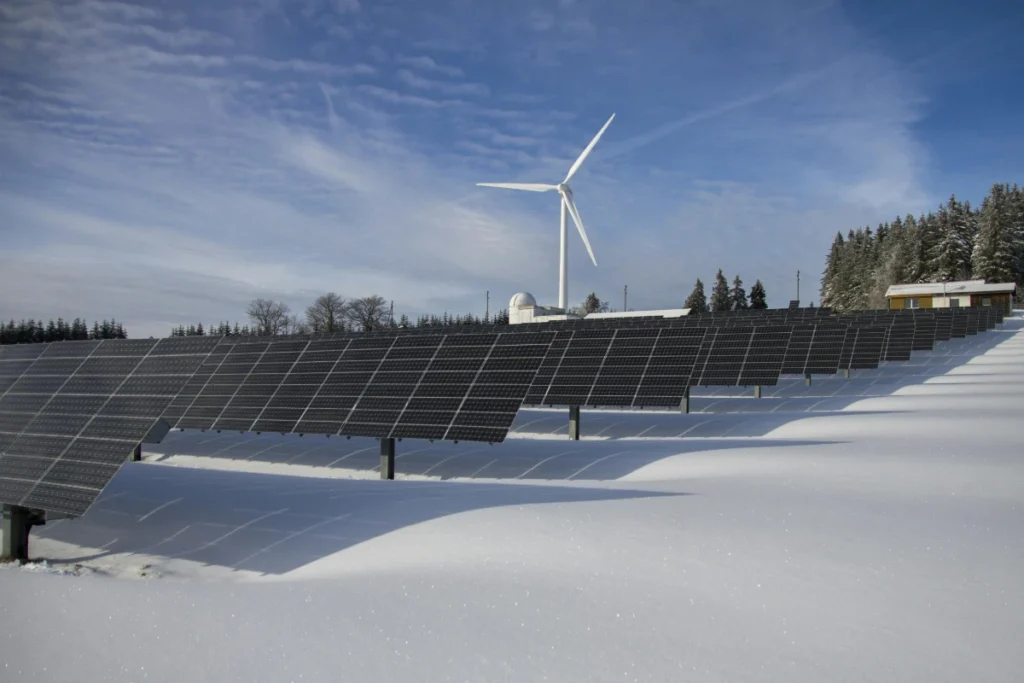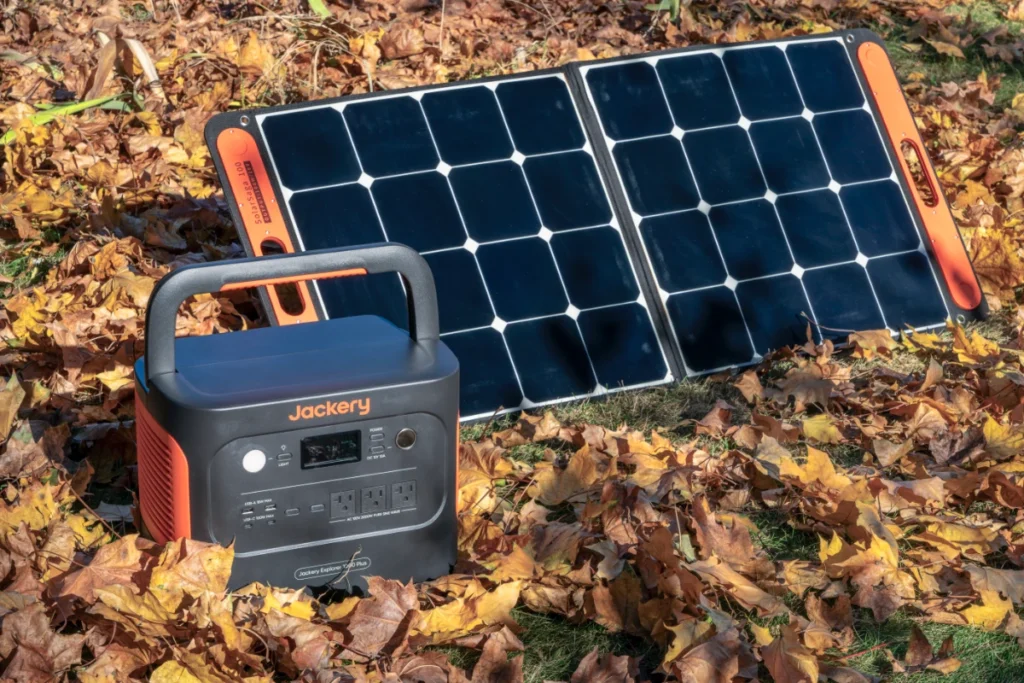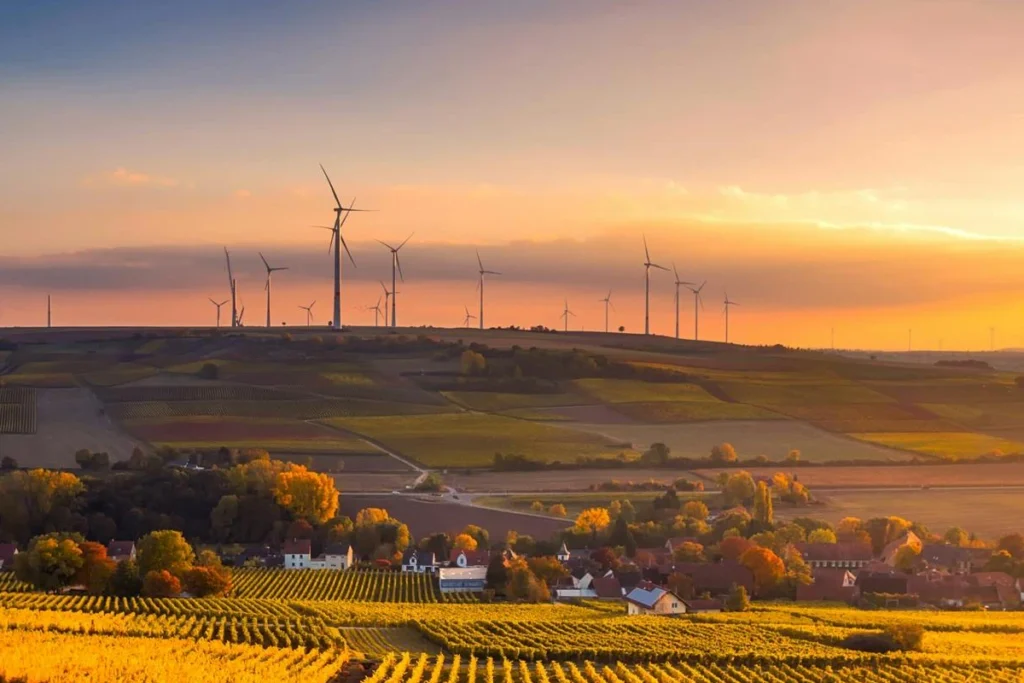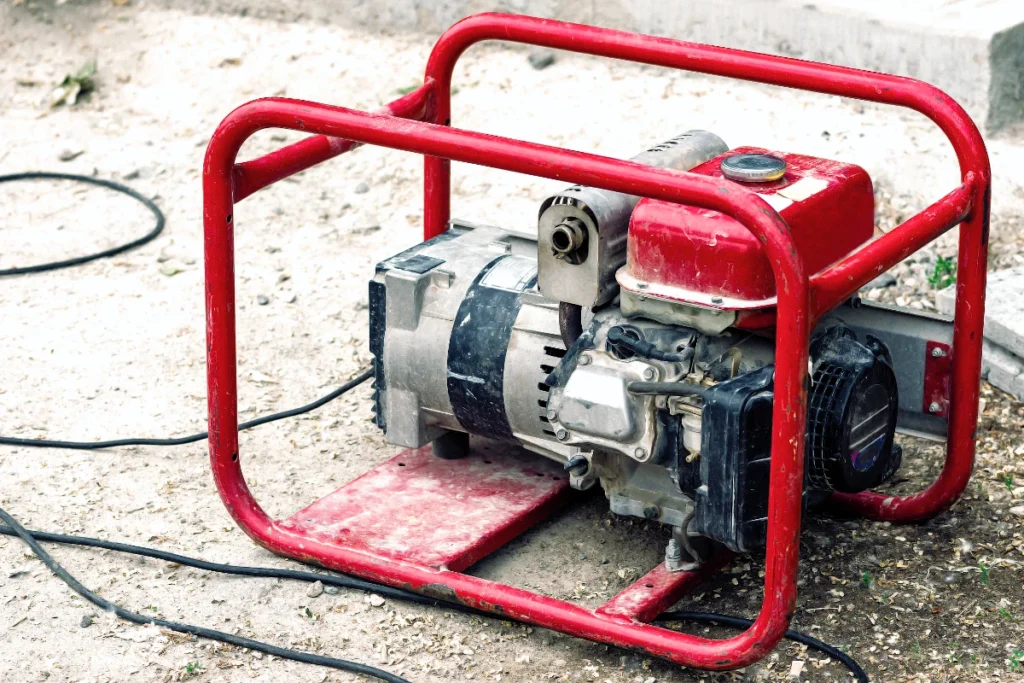Living off the grid represents the ultimate pursuit of freedom and self-reliance, where individuals produce their own energy and disconnect from traditional utility companies. However, identifying the most suitable alternative energy solutions for this lifestyle can be a complex task.
Whether you are planning for a remote, off-grid home or just looking to make your camping experience more convenient, his article explores 14 powerful alternative energy solutions that are particularly well-suited for the task. These options offer both practicality and effectiveness, making the goal of energy independence more attainable.

1. Hybrid Systems
Hybrid energy systems, which integrate both solar and wind power, provide a reliable and continuous energy supply for off-grid living. By utilizing multiple energy sources, these systems ensure that power generation continues even when one source is unavailable, such as during cloudy days with no wind. However, designing and installing a hybrid system can be complex and require substantial investment. Nevertheless, the long-term benefits of energy independence and stability make it a valuable option for those committed to off-grid living.
2. Solar Panels
Solar panels are a cornerstone of off-grid energy solutions, prized for their durability and minimal maintenance needs. Over the years, the cost of solar panels has dropped, making them more accessible to a broader audience. However, the upfront investment remains significant, particularly for larger installations. Solar panels are especially advantageous in remote locations where traditional energy grids are unavailable. To ensure consistent power supply, especially during periods of low sunlight, it is advisable to pair solar panels with a high-capacity energy storage system, such as batteries, to store excess energy for later use.
3. Wood
Wood serves as more than just a traditional fuel source; it is a versatile resource for off-grid living. It can be used for heating, cooking, and even drying clothes, making it a multifaceted solution for those looking to reduce their reliance on more complex energy systems. To maintain the sustainability of wood as an energy source, it is crucial to practice responsible sourcing and replanting. Managed forests and sustainable harvesting practices ensure that wood remains a renewable resource that can be relied upon for generations to come.
4. Biofuels
Biofuels are produced from organic materials, such as plants and waste products, and offer a renewable energy option that can be utilized for various purposes, including cooking and heating. A biodigester can be used to convert food scraps and other organic waste into usable fuel, making it an environmentally friendly and resource-efficient solution. However, the availability and practicality of biofuels depend largely on local infrastructure and access to organic materials. In areas where these resources are abundant, biofuels can play a significant role in reducing dependence on fossil fuels.

5. Batteries and Energy Storage
The rise of advanced energy storage solutions, particularly batteries, has revolutionized off-grid living by allowing excess energy from renewable sources to be stored and used later. This capability is especially critical during periods when energy generation is low, such as at night or during windless days. By storing energy efficiently, batteries ensure that renewable resources like solar and wind power are maximized, contributing to a more reliable and consistent energy supply for off-grid homes.

6. Wind Turbines
Wind turbines are a powerful alternative energy solution, especially in regions where wind is a consistent natural resource. These turbines convert kinetic wind energy into electricity, providing a steady source of power even in less sunny conditions. However, wind turbines require regular maintenance and are highly dependent on location-specific factors, such as wind patterns and turbine placement. Proper planning and installation are essential to maximize the effectiveness of wind turbines in off-grid settings.
7. Solar Water Heating
Solar water heating systems capture and utilize the sun’s energy to heat water for household use. These systems are divided into two categories: active and passive. Active systems employ pumps to circulate water through solar collectors, while passive systems rely on natural convection and gravity. Both types of systems can significantly lower energy bills and reduce environmental impact, making them an excellent addition to an off-grid energy plan. The choice between active and passive systems depends on the specific needs and layout of the home.
8. Human Energy
Human-powered energy solutions, such as hand-crank or pedal-powered generators, offer a unique and practical way to generate electricity in off-grid environments. These devices convert physical effort into electrical power, making them ideal for emergency situations or as a supplemental energy source. While human-powered generators are not sufficient for long-term energy needs, they are invaluable during power outages or in remote areas where other energy sources may be unavailable.
9. Hydro Power
Hydropower systems harness the kinetic energy of flowing water to generate electricity, making them a dependable and environmentally friendly option for off-grid homes located near rivers or streams. These systems can provide a continuous energy supply, especially in regions with consistent water flow. However, the installation of hydropower systems can be costly, and their efficiency may be affected by seasonal variations, such as droughts or floods. Despite these challenges, hydropower remains one of the most reliable renewable energy sources for those living in proximity to water bodies.
10. Biomass Energy
Biomass energy involves converting organic materials, such as wood, agricultural residues, and other biological waste, into usable power. This energy source is particularly versatile, as it can be produced from a wide range of materials available in different regions. However, it is crucial to manage biomass sources sustainably to prevent deforestation and other environmental issues. Additionally, there is a need to balance biomass production with food production to avoid competition for land and resources.
11. Wave Energy
Wave energy, also known as tidal or ocean energy, captures the power of ocean waves and tides to generate electricity. This renewable energy source is particularly effective in coastal regions with consistent wave activity. However, wave energy technology is still in the development stages, and the high costs associated with installation and maintenance make it less accessible at this time. For those living in coastal areas, wave energy represents a promising future option as technology advances and costs decrease.
12. Power Inverters
Power inverters are devices that convert DC (direct current) electricity from sources like car batteries into AC (alternating current) electricity, which is the standard for most household appliances. While not a primary energy source, power inverters are extremely useful for charging small devices or running low-wattage appliances when other energy sources are unavailable. They provide a convenient backup option for off-grid living, especially during travel or in emergency situations.
13. Geothermal Energy
Geothermal energy is a highly efficient and renewable energy source that taps into the Earth’s internal heat to generate electricity. This method is particularly effective in regions with geothermal activity, such as volcanic areas. Geothermal energy offers a stable and continuous power supply, making it an ideal solution for off-grid living in suitable locations. However, the high initial cost of geothermal installation and the limited availability of geothermal resources may restrict its use to specific regions.

14. Generator Power
Generators serve as a reliable backup power source for off-grid living, particularly when renewable energy sources like solar or wind are insufficient. Running on fuels such as gasoline, diesel, propane, or natural gas, generators can provide electricity on demand. However, they come with drawbacks, including fuel costs, noise, and emissions. Regular maintenance is also required to ensure that generators operate efficiently. Despite these challenges, generators remain a critical component of many off-grid energy systems, providing peace of mind during power shortages or emergencies.